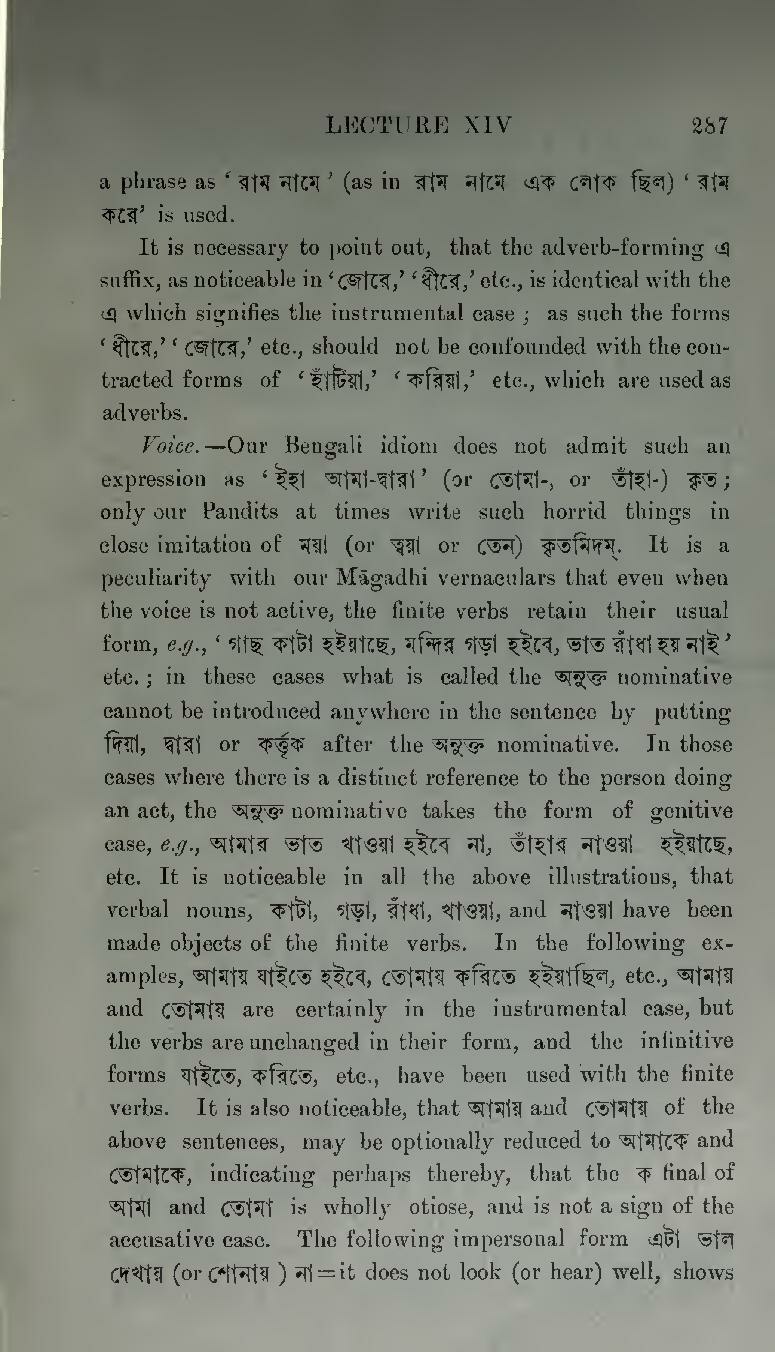a phrase as 'রাম নামে' (as in রাম নামে এক লোক ছিল) 'রাম করে' is used.
It is necessary to point out, that the adverb-forming এ suffix, as noticeable in 'জোরে,' 'ধীরে,' etc., is identical with the এ which signifies the instrumental case; as such the forms 'ধীরে,' 'জোরে,' etc., should not be confounded with the contracted forms of 'হাঁটিয়া,' 'করিয়া,' etc., which are used as adverbs.
Voice.—Our Bengali idiom does not admit such an expression as 'ইহা আমা-দ্বারা' (or তোমা-, or তাঁহা-) কৃত; only our Pandits at times write such horrid things in close imitation of ময়া (or ত্বয়া or তেন) কৃতমিদম্. It is a peculiarity with our Māgadhi vernaculars that even when the voice is not active, the finite verbs retain their usual form, e.g., 'গাছ কাটা হইয়াছে, মন্দির গড়া হইবে, ভাত রাঁধা হয় নাই' etc.; in these cases what is called the অনুক্ত nominative cannot be introduced anywhere in the sentence by putting দিয়া, দ্বারা or কর্ত্তৃক after the অনুক্ত nominative. In those cases where there is a distinct reference to the person doing an act, the অনুক্ত nominative takes the form of genitive case, e.g., আমার ভাত খাওয়া হইবে না, তাঁহার নাওয়া হইয়াছে, etc. It is noticeable in all the above illustrations, that verbal nouns, কাটা, গড়া, রাঁধা, খাওয়া, and নাওয়া have been made objects of the finite verbs. In the following examples, আমায় যাইতে হইবে, তোমায় করিতে হইয়াছিল, etc., আমায় and তোমায় are certainly in the instrumental case, but the verbs are unchanged in their form, and the infinitive forms যাইতে, করিতে, etc., have been used with the finite verbs. It is also noticeable, that আমায় and তোমায় of the above sentences, may be optionally reduced to আমাকে and তোমাকে, indicating perhaps thereby, that the ক final of আমা and তোমা is wholly otiose, and is not a sign of the accusative case. The following impersonal form এটা ভাল দেখায় (or শোনায়) না = it does not look (or hear) well, shows
